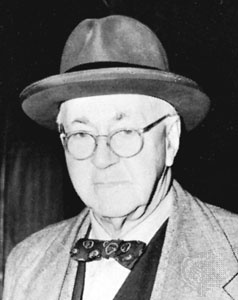Dale, Sir Henry
British physiologist
in full Sir Henry Hallett Dale
born June 9, 1875, London, Eng.
died July 23, 1968, Cambridge
 English physiologist who in 1936 shared the Nobel Prize for Physiology or Medicine with the German pharmacologist Otto Loewi (Loewi, Otto) for their discoveries in the chemical transmission of nerve impulses.
English physiologist who in 1936 shared the Nobel Prize for Physiology or Medicine with the German pharmacologist Otto Loewi (Loewi, Otto) for their discoveries in the chemical transmission of nerve impulses.After receiving his bachelor's degree (1903) from the University of Cambridge, Dale began his research career in 1904 at the Wellcome Physiological Research Laboratories. In 1909 he completed his medical degree (M.D.) at Cambridge and in 1914 joined the staff of what later became the Medical Research Council. From 1928 to 1942 he was director of its subsidiary organization, the National Institute for Medical Research.
Dale identified the compound histamine in animal tissues (1911) and determined that the chemical's physiological effects, which include dilation of blood vessels and contraction of smooth muscles, were very similar to the symptoms of some allergic (immune system disorder) and anaphylactic (anaphylaxis) reactions. After successfully isolating acetylcholine in 1914, he established that it occurs in animal tissue, and in the 1930s he showed that it is released at nerve endings. His research established acetylcholine's role as a chemical transmitter of nerve impulses.
Dale served as president of the Royal Society and was chairman (during World War II) of the Scientific Advisory Committee to the Cabinet. He played a key role in establishing international standards for active biological substances such as hormones, antitoxins, and vaccines. Dale was knighted in 1932 and awarded the Order of Merit in 1944.
- Jody Williams
- Joe Adonis
- Joe Biden
- Joe Calzaghe
- Joe Clark
- Joe Davis
- Joe DiMaggio
- Joe Frazier
- Joe Gans
- Joe Hill
- Joe Lapchick
- Joel Barlow
- Joel, Billy
- Joel, Book of
- Joel Chandler Harris
- Joel H. Hildebrand
- Joel Lehtonen
- Joel McCrea
- Joe Louis
- Joel R Poinsett
- Joe Masseria
- Joe Montana
- Joe Morgan
- Joe Namath
- Joensuu